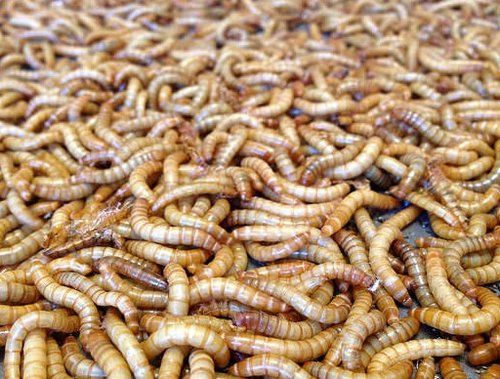photo credit: Beta Hatch
By Lynda Kiernan-Stone, Global AgInvesting Media
Seattle, Washington-based Beta Hatch, a startup focused on the commercialization of the sustainable production of insects as a protein source in animal feed, has secured another $10 million in growth capital led by Lewis & Clark Agrifood, and including existing investors Cavallo Ventures, the VC arm of Wilbur-Ellis, and early-stage venture firm Innova Memphis.
Founded in 2015, Beta Hatch applies both entomology and engineering expertise to superior genetic stock to scale up insect farming with the goal of disrupting existing food systems and making industrially-produced, insect-based, high-value proteins, oils, and nutrients for livestock, pets, and other animals.
Beta Hatch provides an alternative protein-rich feed source through its proprietary, zero-waste process that also produces mealworm frass (insect manure) – an organic fertilizer and soil amendment that improves the health of soil and boosts plant growth for a range of specialty and commodity growers.
One year ago, in June 2020, Beta Hatch announced the successful close of its A-1 funding led by Cavallo Ventures. With that capital in-hand, the company broke ground on its flagship facility in Cashmere, Washington, which, when complete will be the largest mealworm production facility for animal feed in North America.
The facility will include all aspects from the production to the distribution of mealworms. Initially, output will total several thousand tons of mealworms and frass per year, with capacity on a rapid expansion track.
Having prioritized sustainable energy and a zero-waste production model, the Cashmere flagship operates solely on renewable sourced energy, with all of its heating requirements supplied by waste heat from a nearby server farm. It is also zero-waste, with the mealworms feeding on organic byproducts, and the resulting worms and frass being used for feed and fertilizer.
“Insects have the potential to be the world’s most sustainable protein,” said Virginia Emery, founder and CEO, Beta Hatch at the time. “This new funding allows us to break ground on the construction of our sustainable flagship facility, so that we can scale up production commercially to meet existing demand of thousands of tons, and to continue our technology development to further bring down costs and increase efficiencies.”
This latest investment in the company is being led by Tim Hassler, managing director, Lewis & Clark Agrifood, with this additional $10 million in capital being used to finalize and expand this facility as the company grows its footprint in rural America.
“As regenerative food systems become more prevalent, the feed industry will evolve along with it,” said Hassler, who will be joining the Beta Hatch Board of Directors along with Matt Plummer, senior associate, Lewis & Clark Agrifood, who will serve as a board observer. “Beta Hatch’s approach to industrializing insects will provide a stable and steady food source in a variety of markets, while injecting capital investment into rural communities.”
Beta Hatch noted that 30 percent of its crop output is allocated to livestock feed, which makes up 50 percent of the cost of meat. And as much as 60 percent of this food and feed is wasted. And although it all sounds daunting, Beta Hatch views these challenges as opportunities.
Today, black soldier fly is the dominant insect ingredient on the market, but mealworms are rapidly gaining market share due to its superior nutritional benefits and higher protein content. These factors, together with the domestic production capacity being built out by Beta Hatch in North America, has resulted in interest swelling among the livestock, poultry, pet, and aquaculture industries.
“We are proud to be a part of building the future of farming as a member of the Washington agricultural community,” said Emery. “We are excited for our presence in rural America to grow, as we employ and partner with the people in those communities to feed a growing global population.”
Beta Hatch has generated product interest that far exceeds its current production capacity. Currently, all available mealworm production is under contract for the near future, and talks are being conducted with several enterprise customers to partner in the construction of new facilities that will help the company reach its goal of increasing production tenfold within the next year.
“Novel food and feed ingredients is a key area of focus for Lewis & Clark AgriFood,” said Dave Taiclet, general partner and managing director, Lewis & Clark AgriFood. “When we think about sustainability, it’s important that we take a holistic approach in evaluating all processes in the animal production supply chain. Beta Hatch is positioned well to provide a modern, sustainable alternative in the animal feed space, a key upstream component in the overall protein production cycle.”
– Lynda Kiernan-Stone is editor with GAI Media, and is managing editor and daily contributor for Global AgInvesting’s AgInvesting Weekly News and Agtech Intel News, as well as HighQuest Group’s Oilseed & Grain News. She can be reached at lkiernan-stone@

